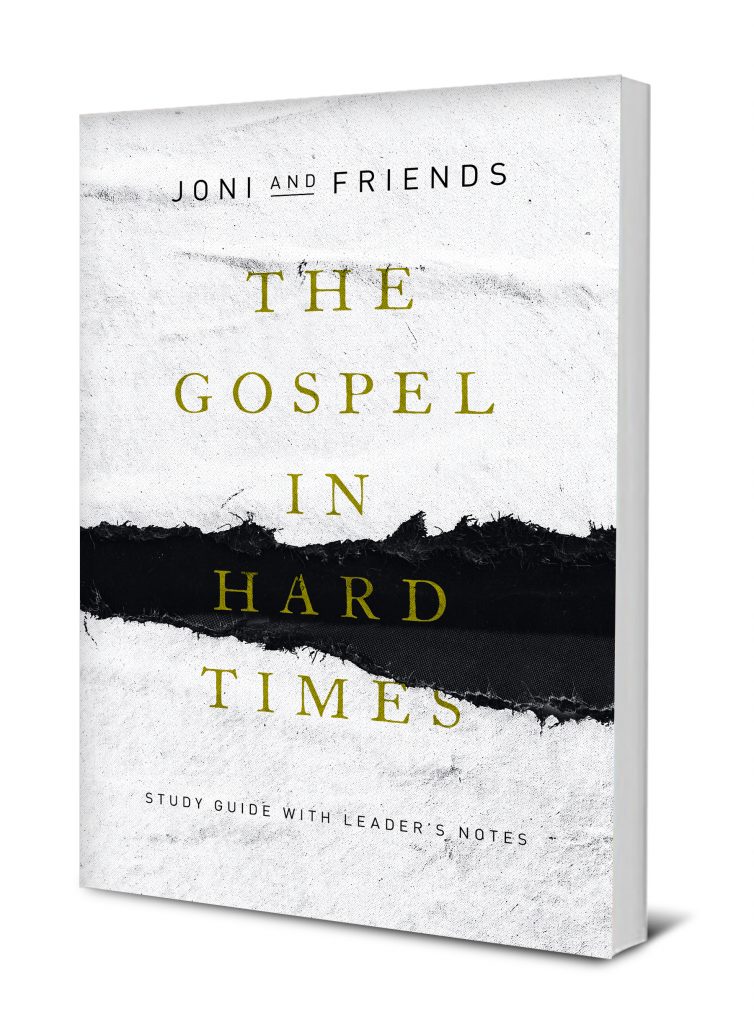Hard times are part of the human condition. They come in various forms, degrees, and life stages to both the innocent and the guilty. Some struggles originate from false beliefs, misguided choices, or selfish behaviors, and others seem arbitrary. But none of our troubles surprise God. In John 16:33 Jesus warned his followers, “In the world you will have tribulation. But take heart; I have overcome the world.” As believers, we face a choice: Will I allow suffering to overwhelm me and drive me away from God? Or will I cry out to God in my distress and come to Christ, the overcomer?
WHY, GOD, WHY?
Why did a young mother’s legs have to be amputated after the bombing at the Boston Marathon? Why did a gunman open fire in a Charleston church one June evening killing nine innocent people? Why are forty-three young children diagnosed with cancer every day in America? Why was a mom saved alone while nine members of her family drowned when a tourist boat capsized in Branson, Missouri?
These tragedies make no sense to us. Attempts to explain them frequently lead to conflicting views about how God works in the world. For example, Rabbi Harold S. Kushner’s popular book, When Bad Things Happen to Good People, describes God as a bystander who neither causes nor participates in any tragedy we might face. God’s only role is to come alongside us after the fact, according to Kushner. If this were true, how can we call God the Sovereign Ruler of the universe? Other contemporary authors such as Richard Dawkins and Christopher Hitchens (known atheists) pit the scientific community against Christianity, declaring war on the very existence of God. Such suppositions are in conflict with the truths in God’s Word.
There’s Nothing Wrong with Asking Questions
While Christians should be mindful of useful medical and scientific advances, we must remember whose we are and what we believe. It’s okay to wrestle with God’s truth, knowing he welcomes our questions.
- Why can’t I pay my monthly bills when I’m working two jobs?
- Why does my son get bullied at school over his learning disabilities?
- Why can’t my grandma remember my name anymore?
- Why this? Why now? Why me?
The Bible tells us God knows what he is doing even when we can’t understand it. He “works all things according to the counsel of his will” (Ephesians 1:11).
Oh, the depth of the riches and wisdom and knowledge of God!
How unsearchable are his judgments
and how inscrutable his ways!
“For who has known the mind of the Lord,
or who had been his counselor?”
“Or who has given a gift to him
that he might be repaid?”
For from him and through him and to him are all things.
To him be glory forever. Amen.
Romans 11:33-36
God is involved in our pre-suffering and post-suffering, as well as being present in all the circumstances of our lives. No one is immune to the effects of living in a fallen, broken world.
Suffering is Inevitable
At some point, most of us will experience one or all of the four basic kinds of suffering:
• Physical suffering can include bodily pain and discomfort, as well as cognitive and mental health issues.
• Spiritual suffering is a consequence of sin and separation from God.
• Emotional suffering is brought on by life circumstances such as heartbreak, divorce, loss of a loved one, and other disappointments.
• Social and/or cultural suffering involves religious rejection, economic exclusion, social segregation, and/or political discrimination.
Suffering is a great equalizer, but the degree and duration of our pain may be very different. Some experiences are lifelong; others can be a one-time crisis with a beginning and an end. In all of them, however, we have God’s promise to sustain us: “For I know the plans I have for you, declares the Lord, plans for welfare and not for evil, to give you a future and a hope” (Jeremiah 29:11).
Our God Is Steadfast, Not Heartless
If you have experienced suffering of any kind, you are in good company. Throughout Scripture, we see God using disability and hardship in the lives of his people to accomplish his purposes. Hannah grieved over infertility (1 Samuel 1:10–11). Moses had a speech problem (Exodus 4:10). Joseph endured slavery and later languished in prison for years even though he was an innocent man (Genesis 37:28; 39:20). Paul experienced a “thorn in his flesh” which some believe affected his vision (2 Corinthians 12:7). God’s prophets promised a future to those who have suffered yet remained faithful (Micah 4:6–7; Zephaniah 3:19).
In hard times, we each face a choice. Will we listen to the critical voices, those outside and within? Or will we choose to believe what God says?
Excerpted from The Gospel in Hard Times ©2019 by Joni and Friends. May not be reproduced without prior written permission.
Photo by zelle duda on Unsplash
The Gospel in Hard Times
The Gospel in Hard Times, by Joni and Friends, is a faith-bolstering small group resource that illustrates how suffering is a catalyst that can deepen our understanding of God’s plan. The Gospel in Hard Times explores how a loving faith community—one body with many parts—can not only meet our needs but also help us walk alongside others who are afflicted, disabled, and marginalized.






